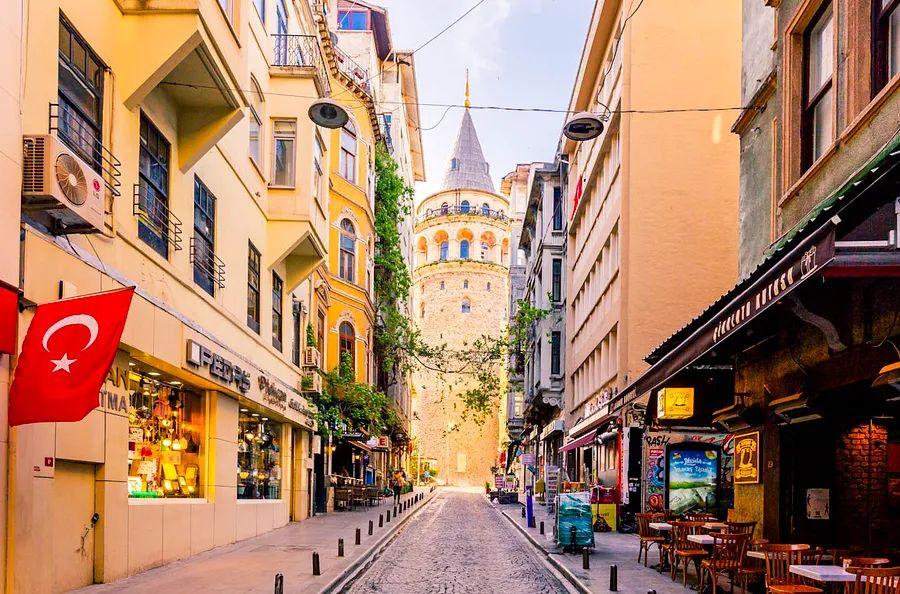What’s the optimal time to visit Istanbul?

The lively streets of Istanbul are seldom quiet. This dynamic city connects two continents and continually draws large crowds each year, offering no shortage of amazing activities.
However, the seasons in the city significantly affect your experience. Rainy, dark winters lead many to seek indoor attractions, while hot, sunny summers fill the beaches and encourage outdoor dining and socializing.
When planning your trip, it’s essential to consider the dates of the two major Muslim holidays, Ramazan Bayramı (Eid Al Fitr) and Kurban Bayramı (Eid Al Adha), which shift by about 10 days annually. These holidays are major travel periods in Türkiye, akin to Thanksgiving or Christmas in the United States, affecting prices, crowds, and potential closures. Here are our recommendations for the best times to explore Türkiye's largest city.
 Summer in Istanbul means enjoying meals outdoors. paul prescott/Shutterstock
Summer in Istanbul means enjoying meals outdoors. paul prescott/Shutterstock
From June to August, outdoor dining and concerts thrive in Istanbul.
Summer marks the peak tourist season in Istanbul. Many locals retreat to vacation homes across Türkiye, leading to higher accommodation prices and long lines at popular sites. While the weather can be hot and humid, the sun glimmering on the Bosphorus is breathtaking, and the numerous outdoor seating options at cafes, restaurants, and bars contribute to a vibrant city atmosphere.
The summer festival season kicks off in June with the classical-focused Istanbul Music Festival and the Opera and Ballet Festival. Locals flock to the Princes’ Islands, Belgrad Forest, and various parks and picnic spots on weekends. As temperatures soar in July, many residents escape the city while tourists arrive in droves. The city buzzes with energy as artists gather for the Istanbul Jazz Festival, making rooftop bars and Bosphorus-side cafes the prime spots to be.
In August, you can relax by the river and cheer on participants in the Bosphorus Cross-Continental Swimming Race. If the humidity becomes overwhelming, hop on a ferry to enjoy a refreshing breeze.
 The shoulder seasons offer ideal conditions for visiting the Suleymaniye Mosque in Istanbul. ozgurdonmaz/Getty Images
The shoulder seasons offer ideal conditions for visiting the Suleymaniye Mosque in Istanbul. ozgurdonmaz/Getty Images
The best months for sightseeing are from March to May and September to November.
The long, generally pleasant shoulder seasons are perfect for exploring Istanbul’s neighborhoods, rewarding those who wander on foot. Tourist crowds lessen, and local life flourishes with a vibrant schedule of arts and cultural events.
The Newroz festival in March heralds the arrival of spring and the Kurdish (and Persian) new year, signaling a revitalization throughout the city with warmer days and more lively evenings. Tulips bloom in city parks in April, drawing people outdoors, while the annual film festival invites them into cinemas.
With warm sunshine but not overwhelming heat, May is a perfect month to explore Istanbul, as outdoor dining and drinking come to life. The festival season begins to ramp up before June's busy lineup with events like Sonar Istanbul and Chill-Out Festival.
As the school year kicks off in September, Istanbul’s cultural scene becomes lively again, particularly in alternating years when the Istanbul Biennial takes place. Galleries, museums, and arts organizations seize this chance to launch new exhibitions and events. The Bosphorus Cup Regatta sees sailors racing on the river.
October offers generally pleasant weather, with cooler evenings marking the last chance for most outdoor activities. Film lovers are honored during Filmekimi, while Republic Day on the 29th brings hundreds of events throughout the city. November still has its share of nice days, but you might notice the influx of şemsiye (umbrella) vendors appearing at the first hint of rain. Cooler temperatures provide a welcome relief for participants in the Istanbul Marathon.
 Visiting Istanbul’s museums in winter is ideal, as you can enjoy them without the crowds. Czgur/Getty Images
Visiting Istanbul’s museums in winter is ideal, as you can enjoy them without the crowds. Czgur/Getty Images
Winter in Istanbul is perfect for budget-conscious travelers.
The winter months can be gray, rainy, and unexpectedly chilly, making them less attractive for visitors. However, this weather gives the city a romantically melancholic atmosphere. The upside is that finding affordable accommodations is easy, and Istanbul's numerous museums, mosques, and other attractions offer plenty of indoor activities.
Despite the fact that most of the city doesn't celebrate Christmas, Istanbul takes on a surprisingly festive atmosphere in December. Escape the cold by visiting a warm hammam, then enjoy the evening at an ocakbaşı, a traditional restaurant known for its delicious grilled meats. January tends to be quiet and cold, with a possibility of snow, but there's always hot tea available to keep you warm. Don’t miss trying salep, a creamy, cinnamon-dusted hot drink popular in winter.
While the winds from the Bosphorus remain brisk in February, the cozy meyhanes (taverns) are bustling with patrons enjoying the winter's fresh fish offerings.

1

2

3

4

5
Evaluation :
5/5